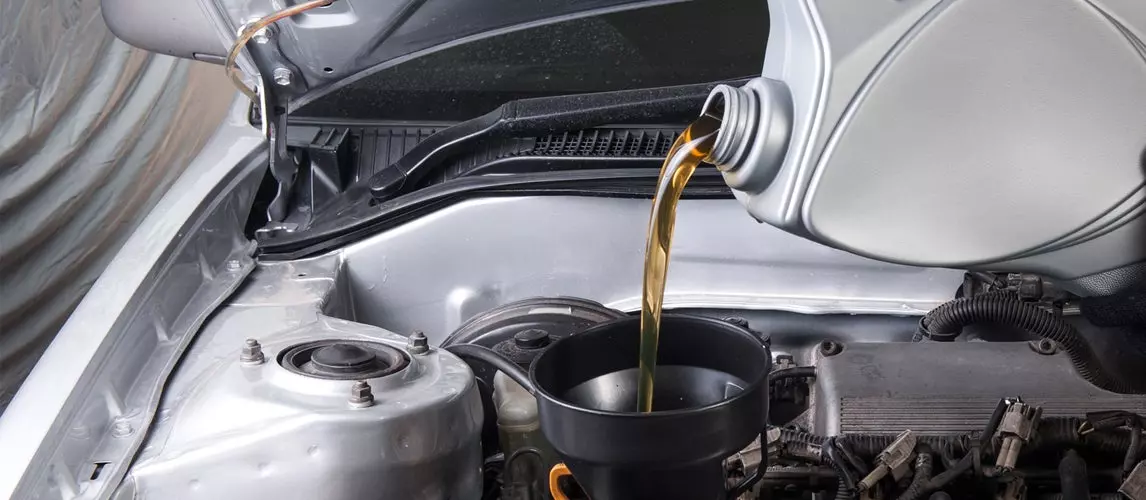Changing your car’s oil is something that we should oil do far more regularly than we think. It is perhaps a routine chore that we all put off until dangerously too late. It’s easy to do and fairly inexpensive too even if you have it changed by a professional.
In this guide to how much does an oil change cost, we look at how much you should be charged either professionally or manually, plus how often we would all be changing our engine oil. Then, to emphasise how important it is to change our car’s oil, we investigate the benefits of changing your engine oil regularly so that your car runs at it best at all times.
How Much Does An Oil Change Cost?
So how much should an oil change cost? Well unfortunately there is no easy answer to this. Firstly, as previously mentioned, you can have it changed by a professional or you can do it yourself. There is obviously a huge price differential in this, especially when you consider the wide range of services that a mechanic or an auto shop offer when it comes to changing your car’s oil. Even within the same shop, the price can vary greatly and even more so between different car shop outfits.
- How Much Does It Cost To Change My Engine Oil Professionally?
In short, an oil change will cost you between $20 to $100 to have it changed by a trained professional. So what do you get for $100 that you don’t get for $20? Well, for $20, your mechanic will change your oil, but that’s with a conventional oil. This is the cheapest option because a conventional oil will do very little else to benefit your car. The most expensive oils are actually fully synthetic and come with a whole host of added extras in the mix to help protect your car’s engine so that it runs more smoothly and effectively for longer. So while it may be more expensive to have your engine oil changed with a fully synthetic liquid, you should really offset this against the added goodness that you are giving to your car – and how this could help prevent expensive repair bills further down the line if only your car had been functioning better when on the road.
However, this price differential between $20 and $100 does not only come from the type of oil that your mechanic uses. Instead, they will offer additional add ons to their oil change service which you should weigh up if you really need and, again, whether they will help your car perform better in the long term thus saving your money over the life of your car. These added extras can be anything like having your air filter changed to having a fuel system cleaning and filtered to clear out your car. These added extras will all depend on the carshop you take your vehicle to, what you go for is up to you. If you are unsure, take a look at your car’s manual. It may sound basic, but the owner manual is an incredibly underused resource for drivers – especially ones that are novices. The manual will be able to tell you how many miles you should have done before you have the air filter changed, for example, or when you need a brake replacement (which can be very pricey).
Plus remember, when the sales assistant at your mechanic’s is trying to sell a more expensive service to you, if your car had something seriously wrong with it, the check engine light would flash on to tell you that you need to take it to the garage straight away. So don’t be fooled by impressive sales techniques that flog you a service that you really do not need.
- Manually
There is no denying it, when you change your engine oil manually, you save yourself many a buck or two. A bottle of oil costs between $25 and $40 for a standard size bottle. The time you spend replacing it is a cost that you will have to factor in yourself – plus do take into consideration that you will get quicker and quicker the more you do it.
The difference in price for the bottle of oil comes from the different types you can purchase as well as paying more for a reputable brand versus a newer ‘name’. As previously mentioned, there is a wide range of engine oil on the market these days from conventional oil to fully synthetic.
The type you get is purely up to you and your car. For example, newer cars will often need a fully synthetic oil whenever it is changed. Again, the best place to check whether this affects you is your owner manual. It can be tempting, especially for novices, to save a few bucks here and there by only ever going for conventional oil, but if your manual specifies that your car is in need of synthetic oil, then it is highly recommended that you follow the instructions as it will save you far more money over the life of your vehicle.
If your car does not need synthetic oil as standard, then it really is your decision which oil you choose. Both will work, just to varying degrees of success.
How Often Should You Change Your Engine Oil
While your car manual will tell you specifically how often you should change your specific car’s engine oil, a good rule of thumb is to change it every 3000 miles if you are unsure – so far more often than most drivers on the road do. Some newer cars, however, can run to about 5,000 or even 7,500 miles. Given that our cars are often, after our houses, our most expensive asset, it is surprising therefore that more of us do not take the time to help them run more efficiently, simply by having the oil changed or taking the time to learn how to do it ourselves.
Some cars come equipped with systems that will monitor your oil’s life span. They’re pretty impressive pieces of kit and are great for those that will all too easily forget to change their car’s oil at all, but they don’t take into account the type of oil you use however. This can obviously have a material impact on the amount of miles that you complete before the need to change your oil.
However, they are still fantastic ways of keeping on top of when to change your engine oil and will ultimately reduce your car running costs in future.
Related Post: High Oil Pressure
The Benefits of Changing Your Engine Oil Regularly
Changing your engine oil regularly obviously protects your engine better and therefore makes your car run better as a whole and over a longer period of time. However, why is this and are there any other benefits to changing your engine oil regularly?
- Lower emissions
Regularly changing the oil of your car means that your car reduces it emissions by a considerable amount. This is due to running on cleaner oil that has less dirt and debris that come out in your exhaust fumes. Plus, when your engine oil is clean, it is that much better at absorbing other dirty engine debris that is created when you drive. In short, it is far better for the environment.
- Better Mileage
One of the major benefits to running a car on engine oil that is clean, because it has been changed, is that your car will use less fuel and go further. This is a huge cost saver especially in terms of how much a bottle of oil is in the first place. The reason being is that cleaner oil is better at providing essential lubrication so that your car engine does not have to overcome as much friction to run.
- Longer engine life
As a consequence of far less friction, using oil in your car that is clean due to regular changing is an easy way to prolong the life of your engine. It simply won’t have had to have worked as hard over its life in comparison to a car that had its oil changed half as much. Wear and friction are the two main ways that engines fail – clean oil is a way to prevent them.
How Much Does An Oil Change Cost: The Bottom Line
The cost of an oil change is not just about the cost of the oil itself, or even the amount paid to a mechanic for their time. Instead, the costs that are saved through having the oil changed regularly should be taken into account in terms of how much longer your engine can run for, how much further it can go on the same amount of gas, and also the benefits clean oil has to our wider environment.
When these notions are weighed up, the cost of an oil change is almost next to nothing.
Source:
- Oil Change Prices — and Upsells to Avoid – nerdwallet
- How Much Does an Oil Change Cost? – Angies list









